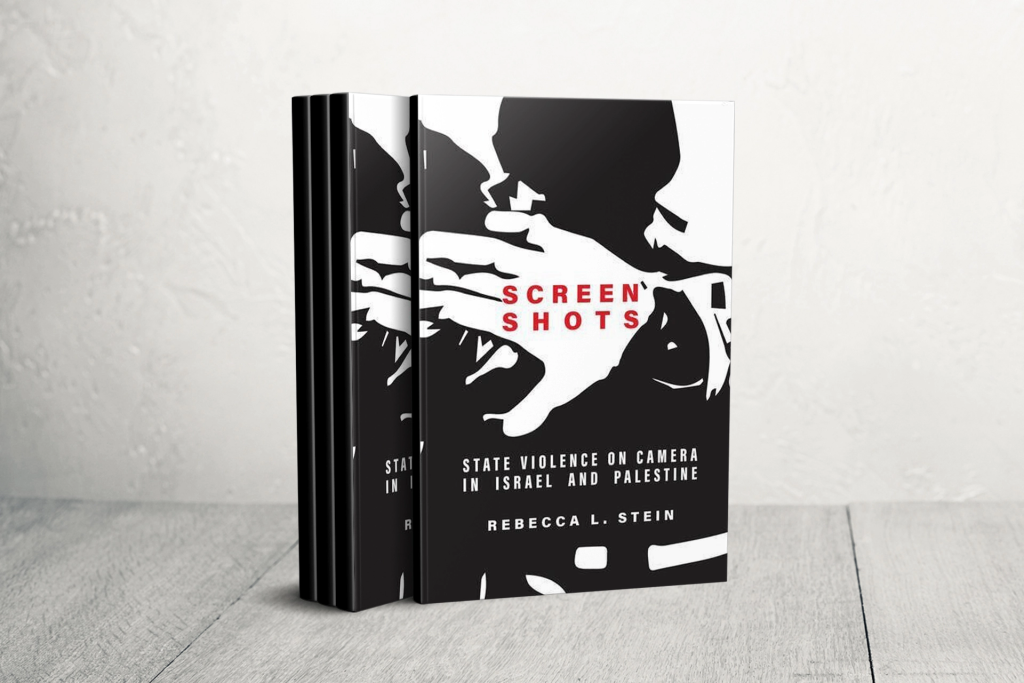Screen Shots: State Violence on Camera in Israel and Palestine

In the last two decades, amid the global spread of smartphones, state killings of civilians have increasingly been captured on the cameras of both bystanders and police. Screen Shots studies this phenomenon from the vantage point of the Israeli occupation of Palestinian territories. Here, cameras have proliferated as political tools in the hands of a broad range of actors and institutions, including Palestinian activists, Israeli soldiers, Jewish settlers, and human rights workers.
Screen Shots investigates what camera dreams and disillusionment reveal about the Israeli and Palestinian colonial present
All trained their lens on Israeli state violence, propelled by a shared dream: that advances in digital photography—closer, sharper, faster—would advance their respective political agendas. Most would be let down.
Drawing on ethnographic work, Rebecca L. Stein chronicles Palestinian video-activists seeking justice, Israeli soldiers laboring to perfect the military’s image, and Zionist conspiracy theorists accusing Palestinians of “playing dead.” Writing against techno-optimism, Stein investigates what camera dreams and disillusionment across these political divides reveal about the Israeli and Palestinian colonial present, and the shifting terms of power and struggle in the smartphone age.
Reviews, Reactions and Interviews
“In her 2021 book “Screen Shots,” the Duke University anthropologist Rebecca L. Stein details how various parties to the Israel-Palestine conflict have used digital photography to document the occupied territories: the Israeli government and military, the Palestinian Authority and Hamas, Jewish settlers and nationalists, as well as civil society organizations….The lesson we are condemned to relearn is that the photograph, and the digital photograph especially, does not just derive its meaning from what it depicts; it comes from how it travels, how it mutates, and who determines the trajectory.” – Jason Farago, New York Times
“In her new book, Stein investigates two major phenomena: the production of images by Palestinians as a form of anti-colonial opposition and the Israeli army’s efforts to cast doubt on these images showing colonial violence…It’s important to realize, Stein maintains, that evidence or digital technology – or even the truth – aren’t enough to liberate people from the shackles of colonialism, because sometimes the colonial ideology is much more powerful, as in the case of Israel.” —Neve Gordon, Ha’aretz
Interview with Rebecca Stein on Screenshots, Al Jazeera (Arabic)
“[A] must-read for scholars of political and international communication interested in the dialectic of media and political dreams.” —Mehrnaz Khanjani, Journal of Communication Inquiry
“ [C]ritical foresight into the shifting media ecologies of the occupation.” —Sherena Razak, Journal of Palestine Studies
“Remind[s] us of what can be achieved with trenchant and systematic critique….[a] seminal work.” —Alejandro Paz, International Journal of Middle East Studies
“[M]eticulously researched, ethnographically focused, and well-written case studies that brilliantly and accessibly detail how the camera dreams have swept Israel and Palestine, and how those dreams have come undone.” —Liat Berdugo, Israel Studies Review
“[F]ascinating, informative and valuable…” Jewish Voice for Labour
“A must-read for anyone interested in Palestine.” —Issam Nassar, Illinois State University,
“Approachable and interesting.” Choice
“[A]n elegant, sobering work…required reading for anyone interested in cutting through the colonialist myths that obscure the brutal realities of the occupation.” —Ben Ehrenreich, author of The Way to the Spring: Life and Death in Palestine
“Screen Shots strikes precisely and pointedly at the political nerve of visualized failures, witnessing that misses its mark…. This lucid account both acknowledges and defies the grotesque features of this infamously ugly military occupation.” —Ann Stoler, The New School for Social Research
“Videos of human rights violations are a new form of testimony… Rebecca L. Stein’s literary sensitivity to technology, media, and law inhabits the multi-dimensional space opened up by these images.” —Eyal Weizman, Goldsmiths, University of London